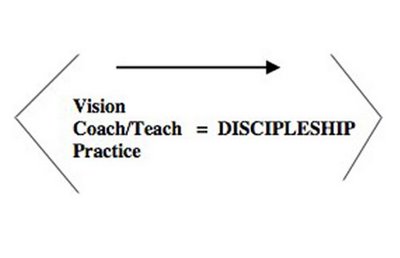Like most corporations, the mission industry structure is usually top down. The western church functions so much like a business firm that we have adopted its language, thus we have CEO’s, vice presidents, department heads all the way down to the people who actually churn out a product – in our case, a church plant.

There is nothing inherently wrong with this structure; doesn’t make any difference whether it’s right or wrong, it’s a system that we are stuck with. We pray our CEO’s will learn “servant leadership,” and we tell our teachers that they are now “facilitators.” In many organizations, certainly not all, neither the visionary or the teacher has planted a church, wrestled with the pain of growing a church and haven’t spent twenty-four hours in a village among the unreached people they proclaim to have heart for. I know of one CEO who failed on the field, didn’t even plant a cell group, didn’t get along with the nationals or colleagues on the field but is now head of his sending agency! Go figure. But I digress.
In a perfect world, with a perfect church the perfect structure is not vertical but horizontal. What shall we call it? How about the Jesus model? Jesus knew how to cast the vision; He did ministry (not in a five star but something between a foxes hole and a birds nest), and he taught/coached in the process. His followers wanted Him to be the CEO of the Kingdom, but He turned it down. He could have been the great rabbi/guru, but He wasn’t content just to tell others how to do it, He actually did Kingdom work, He taught by example.

There are very few people that possess all the abilities that characterize a discipler, even though that is what Jesus called us to be. The best we can hope for is a visionary who can see what needs to be done based on having touched and smelled the battle that he is asking the practioner to commit their lives to; for teachers who instruct out of experience, not mere academic theory; through their failures as well as successes in the trenches of real life. A true servant leader is one, like our Lord, who walked the talk, who led through doing, whose chief aim was to do the will of the Father. He did it all by serving alongside, no, in the midst, of those He came to serve.


2 comments:
This was an issue I always had with the SCP model. The missys were the experts who came and and gave vision and teaching about how to do ministry correctly in a context they had little if any experience in. The discipling in that model needs to be done by folks who are also doing the work and engaging the culture at least in some measure. The fact that few missys in Hungary even attempted Hungarian language or had any Hungarian friends (though I think this is changing now) showed how far removed many of "the experts" were from Eastern European life.
This is off the topic....
I was re-reading some of your earlier blogs, especially the ones where you talk about language and culture.
I wondered if you had read "The Language Instinct" How the mind creates language. by Steven Pinker?
I think you would find it interesting.
Post a Comment